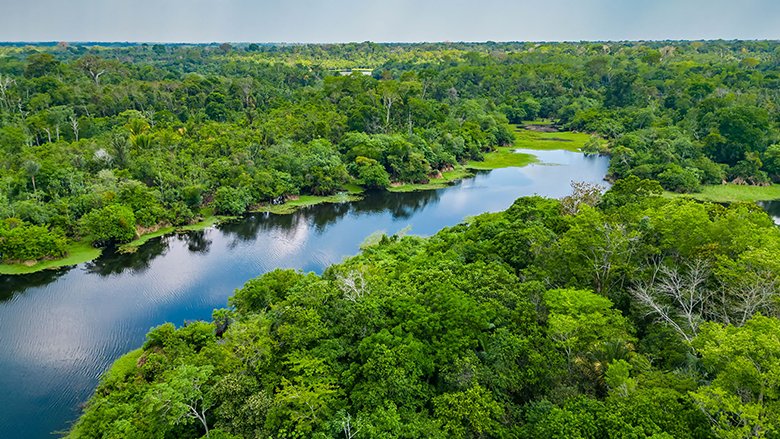Expected Results
- 10,000 construction jobs
- 2,700 direct jobs
- 40,900 indirect jobs in the value chain
- 2 million hours of training
- Export of 180 megawatts of clean energy to the power grid
The Challenge
Brazil has committed to a 43 percent reduction in GHG emissions between 2005 and 2030 - mainly through increasing the share of sustainable biofuels and clean energy in the energy mix, and through forest restoration and reafforestation. Sustainable investments in the forestry sector help support the country's path to GHG emission reduction and economic growth. However, it is critical that these investments are well planned and operations carefully managed to mitigate potential social and environmental risks.
A loan from IFC to Suzano S.A. supports climate change mitigation through investments in sustainably managed plantations that will sequester carbon, and by increasing the use of renewable energy sources. Specifically, the proceeds of the loan have been used for the construction of a greenfield pulp mill and development of eucalyptus plantations in Ribas do Rio Pardo, in the state of Mato Grosso do Sul, concluded in 2024.
WBG Approach
An IFC investment of $250 million, supplemented by an additional $700 million from partner financial institutions, has supported Suzano S.A., the world’s largest producer of hardwood pulp, in the construction and operation of an elemental chlorine free (ECF) pulp mill - the “Cerrado Project”.
Project components included the mill itself, with a capacity up to 2.55 million tons per year, and associated infrastructure – water intake and effluent pipelines, road and rail access, and worker accommodation. The mill’s basic raw material, eucalyptus wood, is sourced from certified responsible forest management and controlled wood areas, on land incorporated into Suzano’s owned and leased properties and third-party within an average radius of 65 km from the mill.
The pulp mill, where operations commenced in the second half of 2024, is the first fossil-fuel free pulp mill in Brazil and in Latin America, representing a new milestone in eco-efficiency and sustainability for the industry in the region. It incorporates design to allow for the optimal use of biomass byproducts, leading to a highly efficient production process. The project includes generation of renewable electricity, with the capacity to sell approximately 180 MW of surplus energy to Brazil’s power grid. To maximize electricity production, the recovery boiler and biomass boiler are high efficiency and designed for higher steam pressure and temperature than any existing units in the region.
The project has made a substantial contribution to rural employment and livelihoods in Brazil, with the creation of around 45,000 jobs in the construction of the plant and associated nursery, and in eucalyptus planting activities. Since the start of operations, the new mill - located in a city with a population of 25,000 and a high prevalence of poverty at 28 percent - has employed approximately 3,000 employees.
Suzano S.A. is committed to training and hiring people from local communities, including indigenous groups, and to providing jobs for women. The IFC investment comes with incentives to increase the share of women in leadership positions from a baseline of 22.5 percent in 2021 to 30 percent in 2025.
